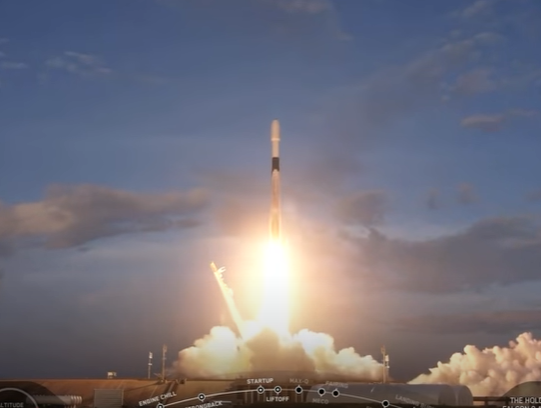
The space industry is traditionally difficult to enter, but not anymore. Currently, there are seven firms that makes up 75% of the industry.
With a net worth of $380 billion, all investments into space was, in the past, by governments, but now 60% of that net worth is owned by commercial companies.
Satellites are a hit with tech companies
The change started in 2011 when then US President Barack Obama opened up space to tech companies, and now more shift is coming.
Scott Campbell, the director at Deloitte Ventures, stated that the new space race and start-up scene is almost all based around space application.
Also Read: China's Navigation Satellite Network is Complete: Its High Degree Accuracy Can Rival U.S. GPS
In the past, building and launching a satellite in order to collect data in space or make communications possible costs hundreds of millions of dollars. The satellite itself weigh six tons, much like a size of a bus, and it would be sent up into the geostationary orbit.
But now, it is not that complicated and expensive, tech companies could now send up a nanosat that weighs 25kg to 50kg into the orbit and it will only cost them around $100,000 to $1 million.
Mark Boggett, the chief executive of British venture capital firm Seraphim Capital, said that the launch prices of satellites are falling because tech companies are driving the demand, according to ZDNet.
Boggett said that since tech firms need to launch their own satellites, this drives down the cost of development and launch for everyone else. He said that the new industries of businesses can benefit from using this type of data, democratizing space.
Since more data is sent back to Earth, there are experts that needs to process and analyze it. Because of this, Campbell has seen an increase of businesses around space.
In 2011 alone, there were 234 space-related firms in the United Kingdom, and in 2018 it skyrocketed to 948 tech companies. As for the satellites, there are around 9,000 currently in orbit.
Tech companies in space
Since 2016, massive companies such as OneWeb, Planet, Spire, SpaceX and Amazon have 10% of the satellites in orbit, but there are also around 200 smaller companies who are projected to launch 25,000 satellites until 2025.
In October 2020, NanoAvionics, a small firm specializing in nanosat manufacturing, announced that they are creating 400 new jobs in the United Kingdom. The frim saw their revenues increase 300% in 2020, according to CNBC.
Robin Sampson from NanoAvionics said that in the past, they launched one satellite and had a lot of sensors on it. Now, they have launched hundreds of satellites that have the same one sensor and it is much cheaper to do so, plus it sends back a more consistent data.
Dinesh Patel from PWC UK says that the nanosat market is worth $2.4 billion today, but the annual growth rates of 20% are projected.
Satellites have traditionally been used for TV services, communications and tracking the weather, but newer and cheaper options are attracting tech companies who have massive plans for their respective firms.
Just last year, Microsoft announced that they are teaming up with SpaceX, according to CNET. Their partnership named Azure Space plans to combine the cloud computing services of Microsoft with a global network of satellites.
Related Article: Starlink Satellites Would Soon Service Australian 5G Spectrum-Wider Reach for Global Internet Provider!
This article is owned by Tech Times
Written by Sieeka Khan
ⓒ 2025 TECHTIMES.com All rights reserved. Do not reproduce without permission.




